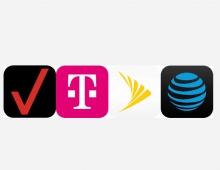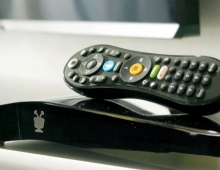
Comcast to Stop Hampering File-sharing, Works With Bittorent
Under pressure from federal regulators, Comcast reversed its stance over hampering online file-sharing by its subscribers and promised Thursday to treat all types of Internet traffic equally.
The Internet service provider said it will collaborate with BitTorrent to improve the transmission of large files over the Internet - and it will eventually stop delaying file transfers based on the specific technology used.
Comcast will migrate by year-end 2008 to a capacity management technique that is protocol agnostic. "This means that we will have to rapidly reconfigure our network management systems, but the outcome will be a traffic management technique that is more appropriate for today?s emerging Internet trends. We have been discussing this migration and its effects with leaders in the Internet community for the last several months, and we will refine, adjust, and publish the technique based upon feedback and initial trial results," said Tony Werner, Comcast Cable?s Chief Technology Officer.
Since user reports of interference with file-sharing traffic were confirmed by an Associated Press investigation in October, Comcast had vigorously defended its practice, most recently at a hearing of the Federal Communications Commission in February.
At issue was whether a service provider like Comcast has the right to control what types of Internet traffic it will let through, block or delay. Comcast said it needs to clamp down on heavy users of Internet bandwidth so others won't be slowed down.
FCC Chairman Kevin Martin said that while he was "pleased" that Comcast has reversed course, he remains concerned that the nation's largest cable company isn't stopping the practice now. Comcast gave itself until year's end.
Consumer and "Net Neutrality" advocates have accused Comcast of playing judge and gatekeeper for the Internet by secretly blocking some connections between file-sharing computers. They also accused Comcast of stifling delivery of Internet video, an emerging competitor to its core business.
Comcast did not specify how it would manage traffic in the future but said one option was to delay file transfers for the heaviest downloaders, regardless of the specific mechanism used, as the company has been doing.
In turn, BitTorrent acknowledged the need of ISPs to manage their networks, especially during times of peak congestion. "While we think there were other management techniques that could have been deployed, we understand why Comcast and other ISPs adopted the approach that they did initially. Recognizing that the Web is richer and more bandwidth intensive than it has been historically, we are pleased that Comcast understands these changing traffic patterns and wants to collaborate with us to migrate to techniques that the Internet community will find to be more transparent," said Eric Klinker, BitTorrent?s Chief Technology Officer.
The vast majority of file-sharing is illegal distribution of copyright-protected files. But file-sharing is also emerging as a low-cost way of distributing legal content - in particular, video.
Comcast and BitTorrent said they want to work out network management issues privately, without government intervention.
BitTorrent acknowledged service providers have to manage their networks somehow, especially during peak times.
Shortly after the Comcast-BitTorrent news broke, RIAA released the following statement praising the deal:
"We are pleased that Chairman Martin, Commisioner Tate and others recognize that protecting valuable copyrighted works is central to any discussion about network congestion," said RIAA's Chairman Mitch Bainwiol. "We look forward to working together with the FCC and private parties such Compact and BitTorent to ensure that the theft of music and movies is addressed as part of conversations to make networks more efficient", he added.
MPAA chairman Dan Glickman a;sp called the agreement "exactly the kind of industry cooperation that is urgently needed to address the problem of online piracy."
Comcast will migrate by year-end 2008 to a capacity management technique that is protocol agnostic. "This means that we will have to rapidly reconfigure our network management systems, but the outcome will be a traffic management technique that is more appropriate for today?s emerging Internet trends. We have been discussing this migration and its effects with leaders in the Internet community for the last several months, and we will refine, adjust, and publish the technique based upon feedback and initial trial results," said Tony Werner, Comcast Cable?s Chief Technology Officer.
Since user reports of interference with file-sharing traffic were confirmed by an Associated Press investigation in October, Comcast had vigorously defended its practice, most recently at a hearing of the Federal Communications Commission in February.
At issue was whether a service provider like Comcast has the right to control what types of Internet traffic it will let through, block or delay. Comcast said it needs to clamp down on heavy users of Internet bandwidth so others won't be slowed down.
FCC Chairman Kevin Martin said that while he was "pleased" that Comcast has reversed course, he remains concerned that the nation's largest cable company isn't stopping the practice now. Comcast gave itself until year's end.
Consumer and "Net Neutrality" advocates have accused Comcast of playing judge and gatekeeper for the Internet by secretly blocking some connections between file-sharing computers. They also accused Comcast of stifling delivery of Internet video, an emerging competitor to its core business.
Comcast did not specify how it would manage traffic in the future but said one option was to delay file transfers for the heaviest downloaders, regardless of the specific mechanism used, as the company has been doing.
In turn, BitTorrent acknowledged the need of ISPs to manage their networks, especially during times of peak congestion. "While we think there were other management techniques that could have been deployed, we understand why Comcast and other ISPs adopted the approach that they did initially. Recognizing that the Web is richer and more bandwidth intensive than it has been historically, we are pleased that Comcast understands these changing traffic patterns and wants to collaborate with us to migrate to techniques that the Internet community will find to be more transparent," said Eric Klinker, BitTorrent?s Chief Technology Officer.
The vast majority of file-sharing is illegal distribution of copyright-protected files. But file-sharing is also emerging as a low-cost way of distributing legal content - in particular, video.
Comcast and BitTorrent said they want to work out network management issues privately, without government intervention.
BitTorrent acknowledged service providers have to manage their networks somehow, especially during peak times.
Shortly after the Comcast-BitTorrent news broke, RIAA released the following statement praising the deal:
"We are pleased that Chairman Martin, Commisioner Tate and others recognize that protecting valuable copyrighted works is central to any discussion about network congestion," said RIAA's Chairman Mitch Bainwiol. "We look forward to working together with the FCC and private parties such Compact and BitTorent to ensure that the theft of music and movies is addressed as part of conversations to make networks more efficient", he added.
MPAA chairman Dan Glickman a;sp called the agreement "exactly the kind of industry cooperation that is urgently needed to address the problem of online piracy."





















